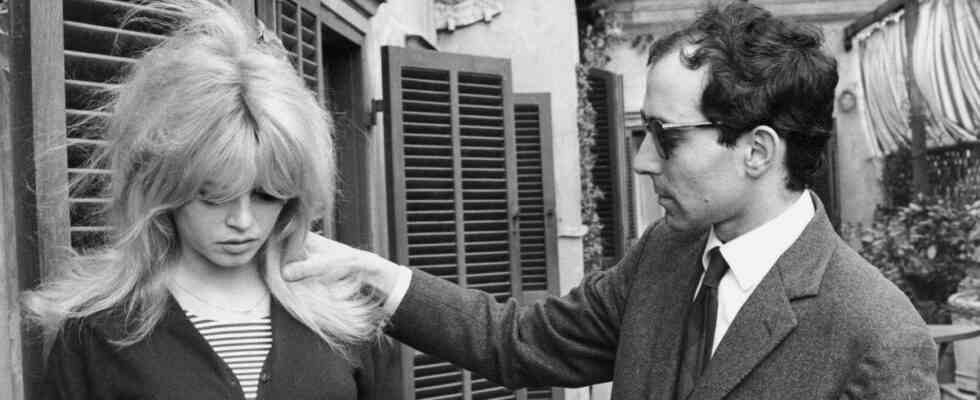It was the last sacred monster of the New Wave. Jean-Luc Godard, who started out as a critic for Cinema notebooks before revolutionizing the art of cinema died on Tuesday at the age of 91, leaving behind him a major work, in particular his youth films shot with Jean-Paul Belmondo (Out of breath, Pierrot le fou), Anna Karina (A woman is a woman, live her life) or Brigitte Bardot (Contempt).
Born in 1930 in Paris to a French family settled in Switzerland, Jean-Luc Godard was a disturbing and fascinating filmmaker, admired or hated by the same people who saw in him a complete, paradoxical author, at the same time modern, creative, pretentious or boring. The New Wave, it was his films that best symbolized it, even if he did not invent it sinceBreathlessher first and most famous film was not made until 1960, several years after the first films of Agnès Varda (The Short Tip 1955) or Claude Chabrol (The Handsome Serge 1958), his associates at the time.
There followed a handful of films made in a few years which very quickly elevated the young director to the rank of complete author, both scriptwriter and dialogue writer of genius, capable of overturning the editing table to impose shots with different rhythms, with jerks and jerks: The Little Soldier, Contempt, Band apart Where Pierrot le fou, so many films that have become cult… Because it is as a theoretician but above all as an inventor of freer, more spontaneous, more “true” forms that he has contributed to revolutionizing cinema. Like his colleagues François Truffaut, Jacques Rivette or Eric Rohmer, he has become an intellectually very influential filmmaker. And probably the least wise of all these audacious ones.
An influential filmmaker who has become very committed
In 1968, the events of May encouraged him to become politically radicalized and marginalized. He broke with his old friends, like François Truffaut, whose cinema he described as bourgeois. He tries to launch himself into a political cinema where the author would give way to the notion of collective, but these films are not widely shown. He then experimented with video with his partner Anne-Marie Miéville and appeared on television to talk about the influence of images. Then he returned to a more conventional cinema at the dawn of the 1980s with Save who can (life)but without regaining the central place it occupied in the 1960s.
In 1981, he offered himself the luxury of refusing the National Order of Merit: “I don’t like to receive orders, and I have no merit,” he declared at the time. Otherwise the merit of pleasing a new generation of young international filmmakers, from Wong Kar-wai to Quentin Tarantino, who then do not hesitate to slip references to Godard into their films. The illusion will last only ten years. When in his movie New wave (1990), to the question “What are you doing? “Alain Delon replies” I pity “, we can only attribute this reply to the filmmaker himself who, little by little, disappears from the radar and hardly appears in public anymore. He skips the Cannes festival with socialist movie (2010), claiming a “Greek evil” comparable to the economic crisis that this country is going through.
He continues to experiment by shooting a 3D film at home (Farewell to language2014) or by giving a final press conference in Cannes via Facebook to The picture booka film of quotes and collages which won him an honorary Palme d’Or in 2018. Since then, we have only had vague news of a filmmaker who shone above all by his absences, as evidenced by the ugly rabbit posed at Agnès Varda and JR who came to meet him at his home in Switzerland for their documentary, Faces Villages. A false leap that made the filmmaker cry bitterly.

